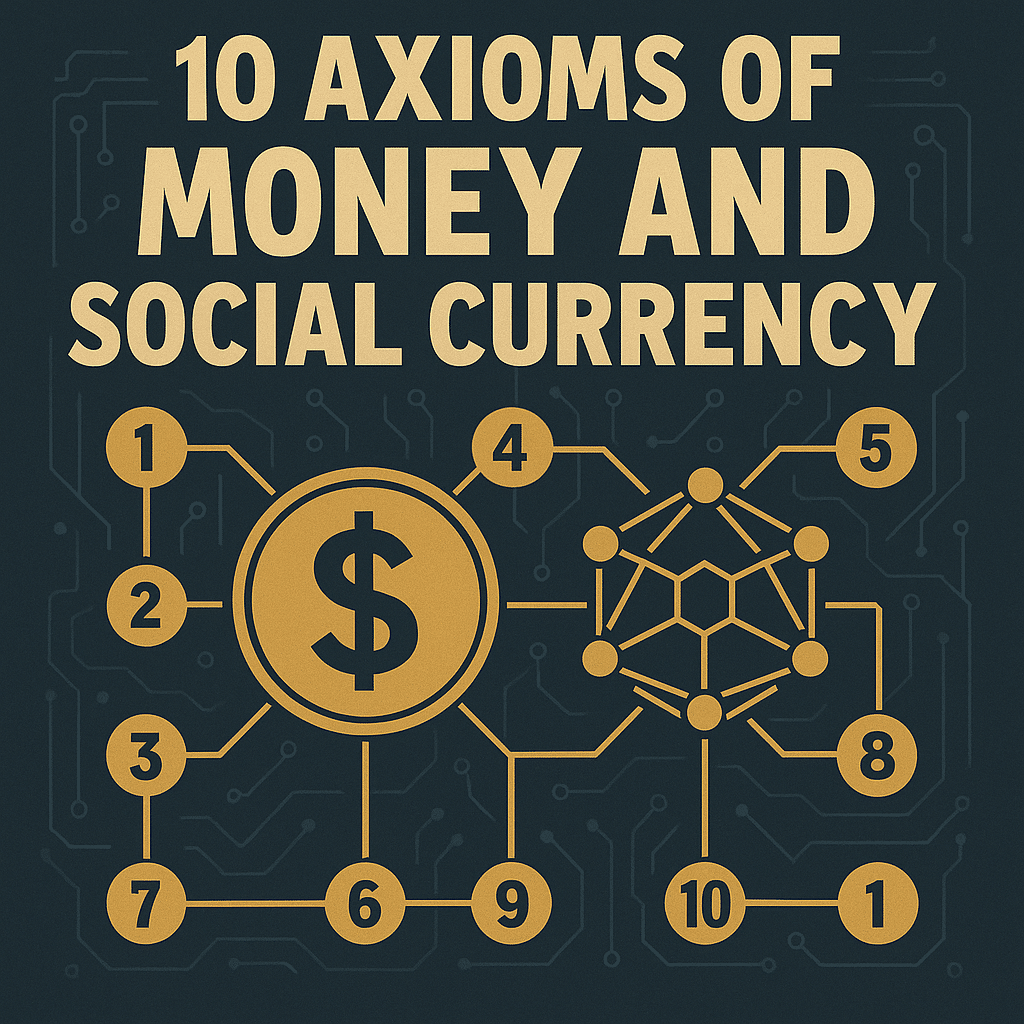Axiom 01: Trust is the Root of All Currency
Currency = f(Trust)
All money—fiat, crypto, or emotional—is a symbolic container of trust. Without trust in the system or counterparty, the value collapses. This is the core of both blockchain and human credit.
Axiom 02: Attention is the Base Unit of Social Capital
Social_Capital ∝ ∑ Attention_Received
In modern digital ecosystems, sustained attention translates directly to influence, monetization, or clout. The longer one holds others’ gaze, the greater their market value.
Axiom 03: Scarcity Amplifies Perceived Value
d(Value)/d(Scarcity) > 0
A good or person’s perceived worth increases as access to them decreases. Scarcity generates desire, whether in limited edition NFTs or emotional availability.
Axiom 04: Reciprocity is the Conservation Law of Exchange
∇•(Value_Given – Value_Received) = 0
True value systems balance over time. Sustainable ecosystems—emotional or financial—depend on cycles of reciprocal giving and acknowledgment.
Axiom 05: Identity Can Be Collateralized
Credibility = Collateral(Identity)
Reputation and past behavior form a kind of credit score in both financial systems and social dynamics. The more consistent the identity, the more leverage it holds.
Axiom 06: Inflation Erodes Not Just Currency, but Connection
Inflation_rate ↑ ⇒ Connection_strength ↓
In both economics and relationships, excess devalues. When words, favors, or money are printed without scarcity, trust dilutes.
Axiom 07: Value Is Contextual, Not Absolute
Value = f(Context, Need, Time)
What is worthless in one context becomes sacred in another. A moment of presence can outweigh a million dollars when grief is peaking.
Axiom 08: Leverage Is Power Multiplied by Perception
Leverage = Power • Belief
The ability to move systems or people depends not just on actual resources, but the belief that one has influence. This is the basis of investor confidence and cult leadership.
Axiom 09: Emotional Debt Accrues Interest
Emotional_Debt(t) = ∑(Unspoken + Unrepaid) × Time
Like unpaid loans, unresolved emotional obligations grow heavier with time. Ghosting, avoidance, and abandonment all generate compounding weight in the mesh.
Axiom 10: Generosity is the Engine of Trust-Led Economies
Trust(t) = ∫(Generosity • Intent) dt
In non-zero-sum systems, giving without demand for immediate return expands the mesh’s bandwidth. It’s the viral core of gift economies, reputation-based trust systems, and long-game power plays.
